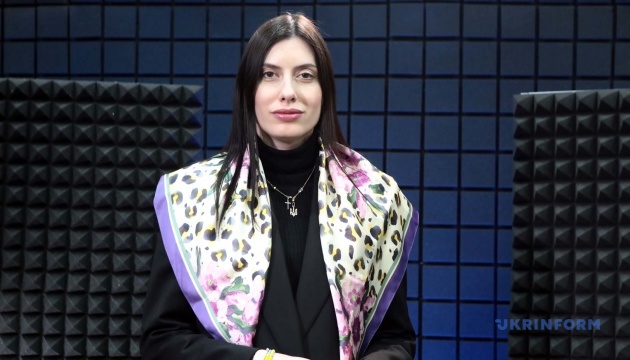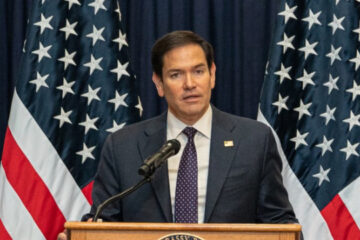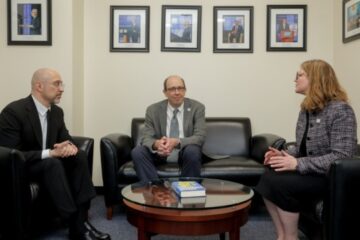The question of justice, of compensation and punishment for the crime of aggression and war crimes committed by Russia during its war on Ukraine are the topics that, unfortunately, are gradually fading into the background in the information environment. For us, Ukrainians, for all those at the front line and the home front, there can be no end to the war until justice and punishment are fully reached. The Council of Europe and the Parliamentary Assembly of the Council of Europe (PACE) currently seem to be the most involved in these issues. Ukrinform sat down for an interview with Ms. Maria Mezentseva, the head of the Verkhovna Rada’s permanent delegation to the Parliamentary Assembly of the Council of Europe, vice-chair of the Verkhovna Rada Committee on European Integration.
[embedded content]
– I would like to start with your quote: “We believe that the central topic of the April PACE session should be the urgent debates that were initiated by our Romanian colleague Iulian Bulai, the chairperson of the Group of the Alliance of Liberals and Democrats for Europe (ALDE Group) at the Parliamentary Assembly of the Council of Europe. At the conciliation meeting, he raised a very important topic – the unavoidability of liability for the crime of aggression committed by Russia against Ukraine.” Did your expectations for the April session come true?
– Absolutely everything came true. I think the results of the meeting even exceeded our expectations to a degree. We reformulated the topic itself. It included a section titled “War in Ukraine.” And whose war is this? Who is the aggressor? What does war in Ukraine mean? There is a fixed wording in international criminal law, which is “Russian aggression against Ukraine.” And this is important, because diverse theories are currently circulating in the information environment, up to the point where we ourselves are to blame for this war, which, of course, is not an adequate approach at all. It was therefore important for us to highlight this once again, starting with the fairness and adequacy of the term itself. Finally, it’s the resolution, which is very voluminous and encompasses some novelties, which I will be happy to share.
– We will definitely ask you about these novelties. But before that, returning to the resolution and to one of its main points, I would like to quote the words of Alain Berset, Secretary General of the Council of Europe, who is particularly devoted to the issue of creating a special tribunal. He said it thus: “We do not want to live in a world where violence, destruction and impunity will prevail. And this doesn’t apply to Ukraine alone. We all need a world where peace, the rule of law and accountability reign.” So, the Council of Europe and the creation of special tribunal, which is also reflected in this resolution adopted in April.
How did it happen that even the Council of Europe, an organization responsible for the rule of law, for human rights, had no opportunity at all to investigate and punish for the crime of aggression? Why is there no way out other than to create special tribunal by dedicated decisions?
– The Council of Europe is an international organization that has recently celebrated its 75th anniversary, but it is still not a court. And not an international court, like, for example, the International Criminal Court, which is based in the Netherlands. Though it would not be able to hold the top political leaders and military brass of the Russian Federation accountable. Why? There are very specific legal reasons for this. Ukraine ratified the Rome Statute last year through a vote at the Verkhovna Rada. Basically, we have entered into fully legal, legitimate relationships with a body that can investigate the crime of aggression, but Russia is not going to shoot itself in the arm by ratifying this statute. Similarly, the UN court, which was a potential platform, is not being considered now, and in our resolutions, we are saying that the United Nations needs to be reformed, this organization has somewhat disappointed many millions of Ukrainians. We are grateful for lots of assistance programs, provided especially in the framework of accountability, punishment and building an appropriate entity, but the United Nations has not helped us much. Though they are working together with the commission, and I worked with this commission back in the summer of 2022, in the Kharkiv region, for example, they are recording and documenting war crimes and publish their research studies and reports.
Why the Council of Europe? This is actually a unique case where, even before the end of an international military conflict (in the terminology of international law), and for us it’s Russia’s war of aggression, we are already talking about establishing justice and about the need to set up a specialized entity. We understood that our colleagues and experts, international policy experts, lawyers would lead us aside from the main goal – which is the creation of a new entity, a special tribunal for the crime of aggression. We once even used the term “tribunal for Putin” in our information environment. But we are not talking about Putin alone, actually. There are some two dozen persons among Russia’s military-political establishment who can be hold accountable for the gravest crime, “the mother of all crimes,” as it is commonly referred to, the crime of aggression committed against Ukraine.
And looking at us, other countries – Moldova, Georgia – have already contacted us for geographical expansion. This is impossible, unfortunately. We are talking, of course, about the fact that the aggression began not in 2022, but in 2014. Well, in general, Ukraine has been waging an almost thousand-year war with Muscovy, participating in the liberation struggle at least 26 times. But the tribunal is not about that at all. We are talking about a modern mechanism of international law. It will not be like the Nuremberg Tribunal, because it is about the highest leaders. Why is it easy to do? We initiated the creation of an office to collect evidence and information, it functions in The Hague, in the Netherlands, as an independent entity. Aggression is very easy to prove, because the aggressor itself spoke out, was telling about it, and then, unfortunately, all of the world is watching this online. It is therefore important for us today to maintain an international approach, in other words, to encourage the maximum possible number of countries to sign a potential bilateral agreement. It is no secret, the draft agreement is ready. By the way, it does not consist of hundreds of pages in volume, it is a very modest, explicit document that contains lots of elements adopted from the Rome Statute. We are talking about immunity from prosecution, which is sometimes difficult to lift, we have outlined how to do it; talking about bringing to justice a person that is absent, which is termed “justice in absinthe”. Someone asks, why, for example, the International Criminal Court warrants in connection with the crimes of genocide, mass illegal, forced displacement of Ukrainian children (approximately 20 thousand of them are currently on the verified list), which have already been issued, why are these warrants not being executed? The countries that are signatories to the Rome Statute make some derivations, make such deviations, and international law, international criminal law does not welcome this, and we do not support it either.
But looking ahead, I must highlight it that the capacity of the tribunal does exist. The evidence is collected, the documents are ready for signature. The Council of Europe and Ukraine can sign a bilateral agreement, to which other member states are already joining. And this applies to the whole world: Japan, Fiji, Algeria, Morocco, the United States, the European Union – any country that believes in justice can become a party to this agreement.
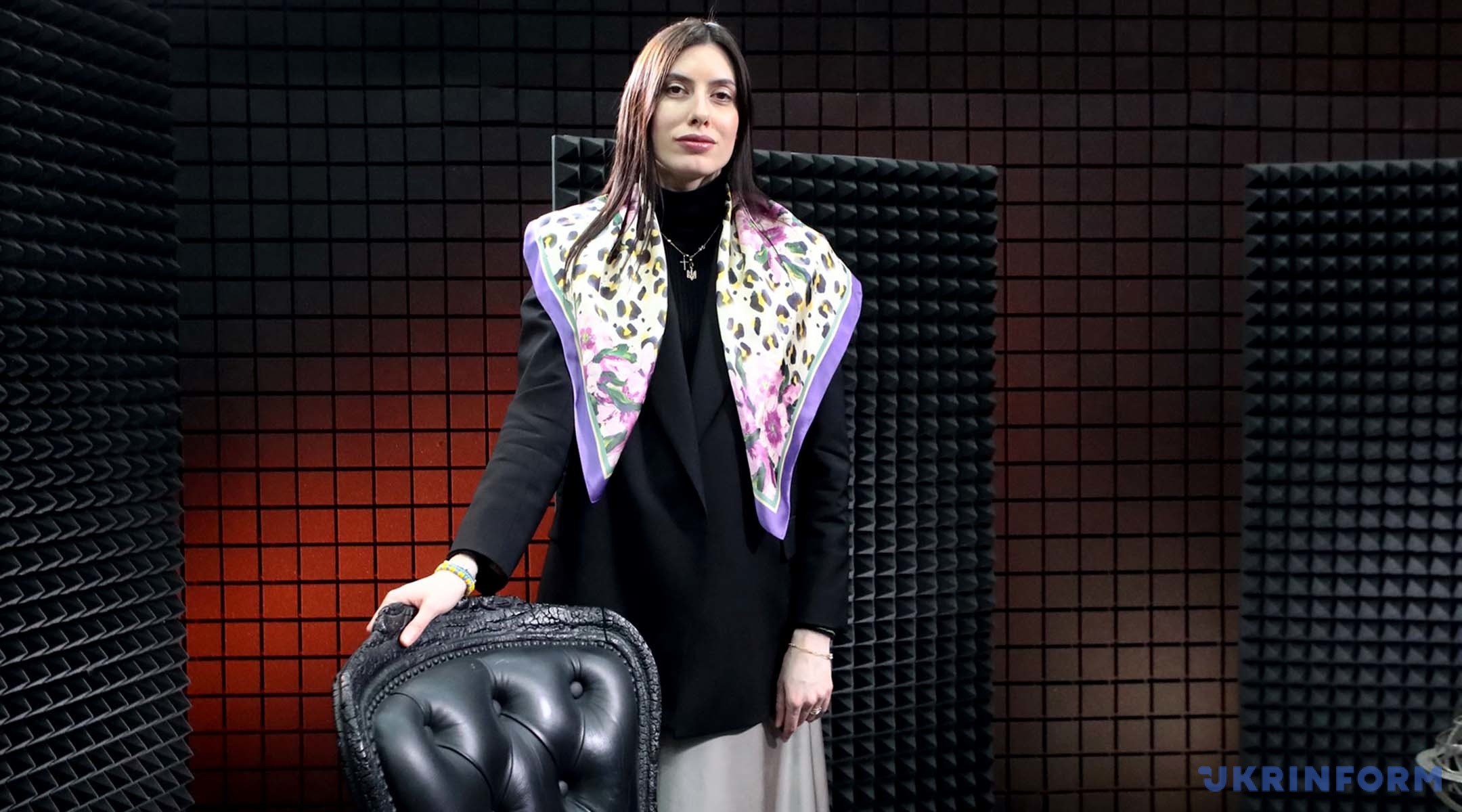
– You mentioned the number of persons among Russia’s military-political establishment that could be subject to the special tribunal – up to two dozen persons. Why that number? Has this already been determined somewhere or is this your preliminary internal assessment?
– This is a preliminary assessment of the working group. It is less political, but more technical, it all depends on the positions these persons hold. We are talking about the top-most elite. There cannot be thousands of them. All the others are perpetrators of war crimes, crimes against humanity, crimes related to genocide.
– In other words, everyone will definitely get their share of punishment…
– We really hope for this. And that is why this group of persons is limited in number. People sometimes perceive it as a tribunal for Putin alone, but I would add “and Co”.
– Regarding the special tribunal, it follows from the PACE documents that we are talking about the signing, and, at this stage, about drawing up three elements to this. This is an agreement between Ukraine and the Council of Europe. This is the tribunal statute, and this is a supplementing document, the so-called expanded partial agreement on the management of the special tribunal. Why these three documents?
– Well, it is actually very simple, it is built in such a way legally so that we are not accused later of abusing international law in some aspects. And in principle, speaking in essence, we have hardly come up with anything new. We simply put together projects from what the founders of various other tribunals talked about. And it is very important that we cooperated with the famous figures who, in principle, defined the very concept of aggression. And this, incidentally, was done in Lviv, in Ukraine, even before the modern Russo-Ukrainian war began. It was very important for us to make the documents understandable so that there were no novelties that could raise questions specifically from the international community.
Currently, under the leadership of the Netherlands, we already have a proposal regarding even the location of the tribunal being created. I think it is no one’s secret that it could be The Hague. Someone spoke about the tribunal in Kharkiv. But for now, for security reasons and, again, taking into account the international component, it will most likely be located in the Netherlands. And it’s not far from the location of the International Criminal Court itself.
You know, I believe that I and my colleagues have done things that simply didn’t seem realistic at the time. As a matter of fact, we have rewritten the general rules and approaches to international criminal law, without violating the provisions proper. I want to thank everyone and, of course, the President for his leading role, because one of the points of the Peace Formula is about justice and the creation of a special tribunal, and we have a special group working along this line. A lot of work has been done by the Ministry of Justice, Ms. Iryna Mudra, our special representative on this matter at the Foreign Ministry Anton Korenevych, and numerous international experts from Great Britain, France, Germany, and the United States.
But let’s not forget about the prerogative of our population and our nation. There have been lots of crimes committed, and you mentioned compensations that will be agreed upon depending on different categories. We project that there will be 45 categories in total. For now, nine categories are open for compensation. But, again, for the first time in history, we are not talking about this after a peace agreement or victory of one of the sides have been achieved. We are talking about this now as the war of aggression is still grinding on. And the question of financing inevitably comes to the fore: where are we going to get the money to pay for all these compensations?
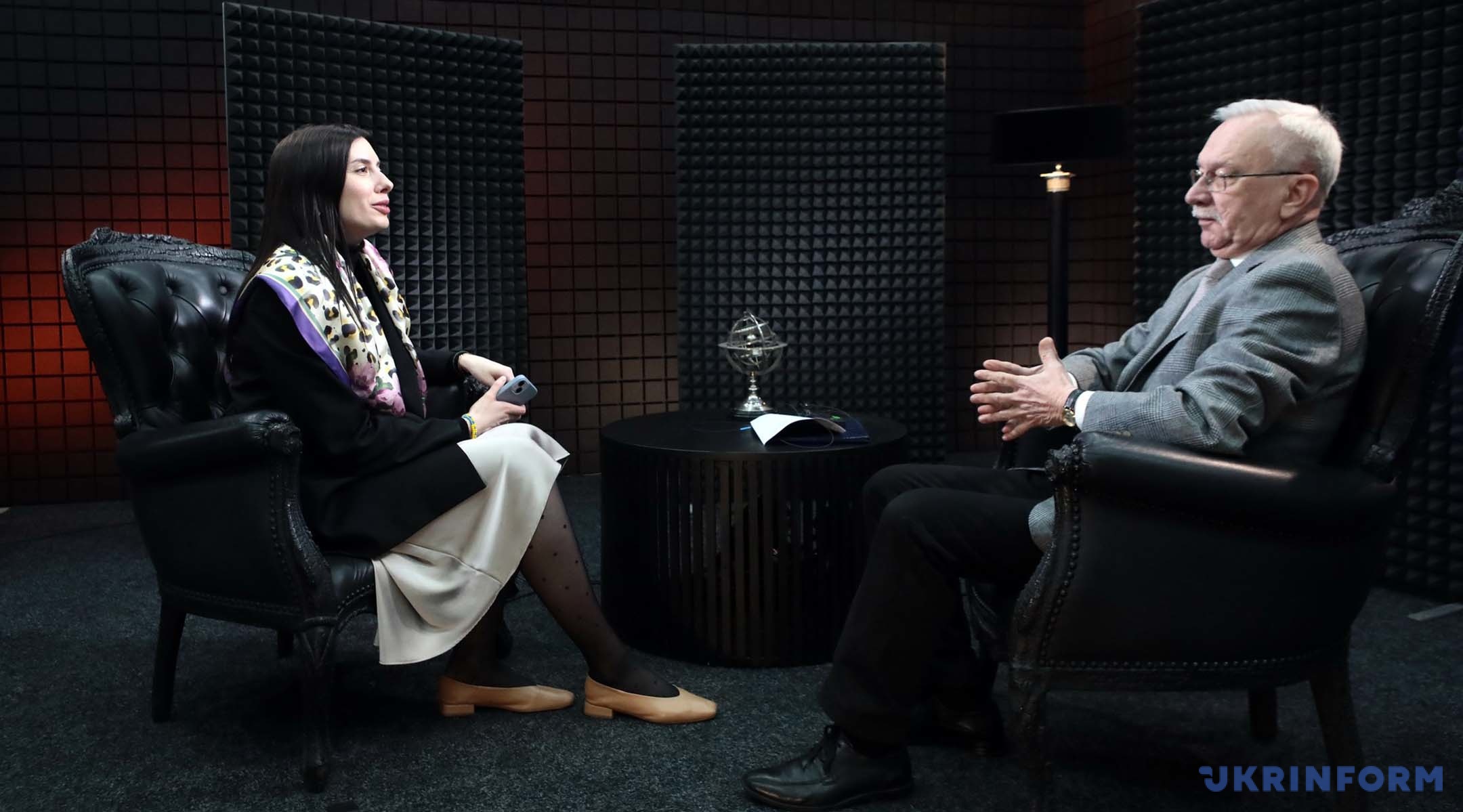
– The resolution of the Parliamentary Assembly of the Council of Europe, which was adopted on April 9 with respect to the special tribunal in general, says, if memory serves me, that the work is generally completed, but the Parliamentary Assembly expects that certain elements will be taken account of.
– And you listed them, and they are what they are.
– It is a well-known fact that, since all the draft documents are finalized, one of the plans, the most appropriate and ambitious, in my opinion, is to have the agreement between Ukraine and the Council of Europe on the creation of the special tribunal signed in Kyiv on May 9. Are we close to this happening?
– I really want to believe we are. But there must be in place a good amount of political will; the draft documents are ready [for signature], the Council of Europe, as far as we judge it, is ready too. We are strongly anticipating an appropriate decision from the President of Ukraine.
– In any case, in my understanding, individual leaders of European countries have already announced that on May 9, on Europe Day, they will be in Kyiv. This would be a worthy celebration of Europe Day. This is exactly what is just waiting to be brought on the table. And especially so since, on this very day, the Russian dictator is hopeful to welcome some international guests for celebrations on the occasion of the Russian “Triumph Victory Day”, which they organize on a yearly basis. For this reason, I would really like this to happen precisely on that day. The question is: how can we be useful for our part? How can we expedite the adoption of final decisions to ensure that all the necessary leaders are here in Kyiv on May 9?
– I think it’s very important that we are making great play of this topic in the media. In particular, Ukrinform is also read in English, and our colleagues have already made a very significant contribution. I am confident that the leaders will arrive at the invitation from the President and the Government of Ukraine, and, of course, also from the Verkhovna Rada, because our colleagues themselves have been building this infrastructure from the parliamentary level, which is no less important. I am not empowered to make announcements that the agreement will definitely be signed exactly on the 9th of May, I am not the one to sign it. But I am confident that the President is satisfied with our work, which has been done in a very tight timeframe. Such agreements take years to prepare. However, it seems to me that the unity between the Secretary General of the Council of Europe, the entirety of that organization, and all those who are not so public but work behind the scenes is what has enabled this agreement to be got ready for signature. Believe me, we went through very severe legal battles, the working group met 14 times in every three months. The latest, symbolic meeting took place in Strasbourg just a couple of weeks ago. And we have the highest expectations for May.
– A very difficult path has been able to be travelled very rapidly. The core group has got its job done, now everything is in the hands of politicians. The question of justice is extremely important not just for Ukraine, for Ukrainians, but also for the future of Europe, for the future of the world order.
– Absolutely yes. After all, none of the world leaders must be given a green light to carry out aggression with impunity. Moreover, I would say that if there is no punishment executed in any form that can be seen legal, it will be an encouragement to new aggressions, and it is therefore urgent to act now. This is an awkward topic for Putin. We have seen how Russian disinformation machine is persistently trying to degrade the idea of such a tribunal, calling it legally worthless, pointing to the Mongolian government’s failure to carry out the binding International Criminal Court arrest warrant for Putin when he paid his first official visit to that country, a member state of the court, in early September 2024. In my opinion, this is a closed chapter already. What is most important now is to get the coalition expanded to include countries from the African continent, the Middle East, the Far East, the Pacific region, both Americas. It is the number that matters. It currently includes an estimated approximate of forty-plus countries, but we want still more countries to join in.
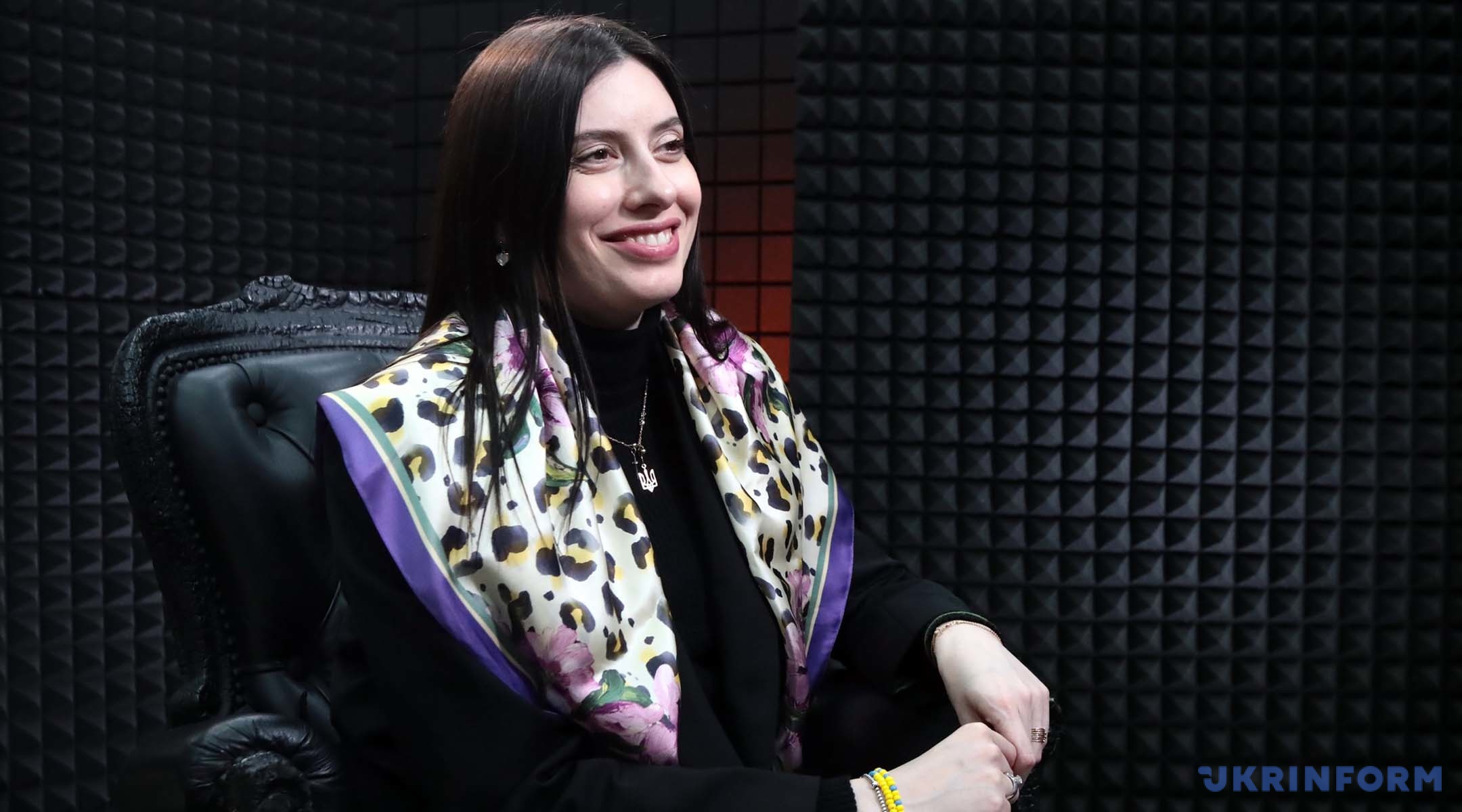
– This coalition will hopefully expand, and the special tribunal will begin its workings soon, maybe after a few weeks from now. The Secretary General of the Council of Europe Alain Berset, whom we have mentioned above, said that the special tribunal is only one part to a larger system that integrates three elements. Alongside the special tribunal, it would include the Register of Damages inflicted on Ukraine by Russia’s war of aggression, and the third element, according to Mr Berset, will be the European Court of Human Rights (ECHR). How do you see these three elements interfacing with each other, complementing each other?
– Well, regarding the ECHR, it, perhaps, was included because it is directly dealing with human rights. I think that this third element is about a compensation mechanism. We know that Russia, at the initiative of a coalition of the Council of Europe member states, was expelled from the organization proper and from the Parliamentary Assembly as well. While previously Russia was thrown out only from the parliamentary level, it is now banned from everywhere. It is too bad that that there are people who hold two passports – Italian and Russian, French and Russian, etc., they, regrettably, continue to be employed at the Council of Europe Secretariat. They are still present there, albeit at lower status and positions. We are seeking to counteract this too, given that there are approximately five dozen them out there. And this is important, because these people are involved in policy shaping and, also, have influence on the decisions made.
Mr. Berset is following up on the work of the preceding Secretary General, Marija Pejčinović Burić of Croatia. I want to thank her, too, because two years ago, a conference was held in Iceland at the initiative of the Ukrainian delegation, and we are, of course, proud of being able to achieve this, because it was the fourth time in the 75 years of the organization’s existence that such an intergovernmental international conference was organized. Iceland hosted this conference in its capital, because it was holding presidency of that organization during those six months. We have been working for a very long time to ensure that our approaches are recognized at the international level. And it was at the conference in Iceland where provisions on the creation of a special tribunal, repatriation of all forcefully deported children, creating a compensation mechanism, and on a register of damages were enshrined in the PACE position documents.
It is important for us that today, the liability for the aggression is directly and practically tied to what every Ukrainian can do now by simply using his/her phone. Using the Diia application, one can apply for compensations in nine different categories, which would cover both material and non-material losses. It is probably fair to say that one cannot evaluate in euros, dollars or hryvnias the cost of a lost family member, the cost of waiting for a loved one’s return from captivity, or the cost of the time one spent searching for own child, or the cost of a sexual crime. That is to say, genocide actually consists in the fact that they want to eliminate us not just informationally or are claiming that the Ukrainian nation doesn’t exist, replacing true history with their invented history, but they want to destroy us physically. And, in particular, on the example of sexual crimes, we saw how real, terrible this genocide is. And I am grateful to those victims who can talk about it today on international platforms. But, let’s say, this is just the beginning. There will be more witnesses and survivors of these war crimes. There have been 20 thousand applications submitted so far, and just recently the commission on compensations has arrived in Kyiv, since it has its representative offices in Europe and here in Kyiv. This is important because people obtain the opportunity to seek advice. In particular, not everyone knows that even if you, for example, have already received compensation from the government of Ukraine, you can also claim a compensation under the Register. These are two processes that do not overlap, and it is also important that, with respect to the Register, one can apply, if the situation allows, for compensations under several or even all of the categories at once. This does not harm the application consideration process at all and takes up to 20 minutes.
The Register of Damage, like I said above, contains more than 20 thousand applications so far, but some colleagues in the Council of Europe told me that the expected number can reach six million. That is, we, of course, must rely on the capacity of this process, we must not disappoint our fellow citizens. And that is why it is very important that those members of the commission who have come to us – and these are colleagues from France, Germany, Israel, the United States of America – have worked investigating genocides on the African continent. That is, it is a very different experience, but they are delighted that applications are already being submitted –not some time later, when the war will end, but now. But, reasonably enough, the problem of funding so far remains a serious issue.
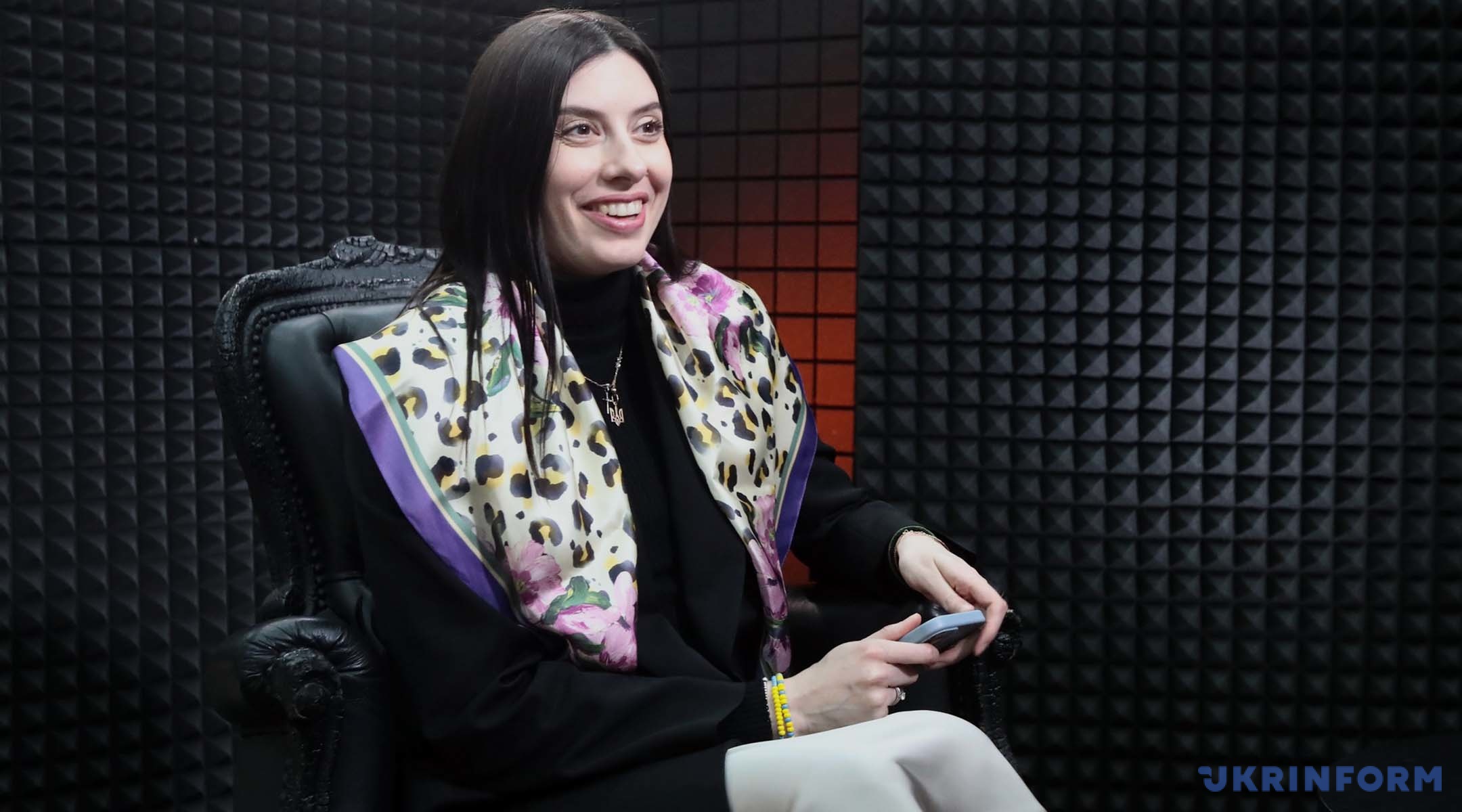
– This problem is long known, we will not have time to talk it over in more detail in this interview, unfortunately. But I would like to clarify the situation with respect to compensation mechanisms, submission of applications, verification, etc. As far as I understand, in addition to the compensation mechanism, which is already working and accepting applications, there is another authority that is supposed to consider and even determine specific amounts. Indeed, 20 thousand applications is only an initial number. Because we all know through our personal connections, contacts, from family members or friends, that everyone has people around who have suffered these losses, harm or, God forbid, experienced torture. Is this all recorded, and will it be considered at a later time?
– Absolutely right. And our success also depends on the ability to consider, on the number of applications submitted. Just for the understanding of Ukrainians: Let’s say we have a building consisting of four apartment blocks with 200 apartments in total. Each broken window is counted as a separate crime, a separate family is empowered to apply for compensation. And we can quite realistically imagine that the facts of war crimes recorded, for example, at the level of the Prosecutor General’s Office plus its regional branches amount to approximately 180 thousand war crimes. But, for example, not all cases are filed. My neighbors, for example, claimed compensations for broken windows and received compensation amounting UAH 36,000, which they spend to replace the windows, everything is fine. And my family, for example, did not apply, because it seems to me that there are people who are more in need of compensation money because they have lost far more than just shattered windows. And here the question arises about how far active Ukrainians are. Some do not believe they would receive compensations, though once they saw their neighbors getting their windows replaced or receiving compensations, they will see that this all does work. Therefore, our task, the task for policy makers is to urgently communicate the information about these opportunities to people so that we can fill and provide capacity to this institution. Because, let’s imagine, if applications are submitted at a sluggish pace, then, at the political level, they can tell us: well, excuse us, but this mechanism doesn’t work well enough. This is important in order to not just use windfall proceeds from immobilized Russian sovereign assets but to fully confiscate these assets at a later time, an approach favored by countries such as Liechtenstein, Luxembourg, and other very wealthy member states of the Council of Europe among others. They don’t really support the immediate seizure of the assets in their entirety, believing that the accumulated interest should be used as long as this issue is not being considered. But the amounts are just a little bit different.
– The following quote is very recent, the Times quoted Ursula von der Leyen as saying: “The West as we knew it no longer exists. Europe is known for its predictability and reliability, which is once again starting to be seen as something very valuable.” It is clear that these statements are provoked by the policy pursued by the US president and the way Washington is approaching specific issues, including justice, regrettably. On the other hand, it would be a good thing if the special tribunal and the agreement due for signature have the widest possible range of participants. What is your vision of this situation? What is the true position held by US Congress members? Can we hope for some support from out there? What is the position held by observers at the Parliamentary Assembly of the Council of Europe? By other countries?
– We invariably meet our colleagues from Canada at every session, we speak to them. It seems to me that our colleagues from the United States do not even know that they can come to Strasbourg for the sessions, and I intend to send letters to my colleagues. I just do not know who can be in the delegation, because these are not fixed compositions, there can be rotations. That is, if we have 24 people’s deputies from all political parties and political groups fixed in a composition for one year, and then only in January we can replace someone, then absolutely anyone of the senators, congressmen can travel here together in a mixed group. We haven’t seen them yet. It’s very important that this platform is made use of.
Regarding the position on the tribunal, I think we all will have plenty of work to do. When we were on one particular tour requested by our President in December 2022, it was called the tribunal tour, we visited Great Britain, Germany, France and the United States of America. We were very impressed by the fact that we were able to achieve much progress; the French National Assembly, for example, amended the text, voted its support for the tribunal, and this was part of very productive work we did together with the Elysee Palace. They also provided us with laboratories bought with French government funds for DNA tests. Regarding Germany, for example, the Bundesrat voted its support, but the Bundestag of the then convocation never managed to do so, even though these were colleagues from the Bundestag who were rapporteurs on the tribunal. And Germany fully supports this process. But it seems to me that now, the vote at the Bundestag itself is not as important as the German government’s engagement in the process proper of creating the tribunal and signing the agreement.
Well, our American partners still need to be informed, because, in my opinion, President Trump is not being told everything or is not being told enough about this supreme crime. To be honest, even Mr. Borrell was once confused a little bit about the tribunal. Meanwhile, it is important that Ms. von der Leyen, who is heading the EU government and the European Commission for the second term, is well aware of all the crimes committed by Russia, and she steadfastly supports this strategy. I was pleased to see the EU making a statement in support of the creation of the special tribunal. We are grateful and hoping that all 27 EU member states will support this too. Indeed, Slovakia or Hungary may have a separate position, but I definitely know that the Hungarian and Slovak peoples are very much supportive of this idea.
– Thank you for the clarification. Are there any concrete thresholds as to the number of signatory countries to the special tribunal agreement for it to start working?
– No, there are none.
– Does that mean to say that one signatory country will suffice to get work stared? Hopefully, over time there will arise awareness of the need to do so, to engage in this cause, because in the 21st century, tolerating such crimes, such brutal disregard for laws and rules is simply unacceptable.
– I will tell you even more: this probably threatens the very existence of projects such as the Council of Europe, the European Union, the Organization of the United Nations. And the crisis that is occurring right now requires a response. This response is on the surface, and this is in justice.
– The crisis, in my opinion, is a manifestation of those complex processes that can be symbolically called the formation of a new world order. And it is clear that European security system should be at the center of this new order. And it is clear that Ukraine should be the at the center core of this security system.
Thank you for your persistent work on mechanisms for bringing the aggressor country to justice, punishing criminals and restoring justice.
Interviewed by Ihor Dolgov
Photo: Volodymyr Tarasov
The interview can be watched in full here
Source: Maria Mezentseva, Head of the Verkhovna Rada's Permanent Delegation to PACE

